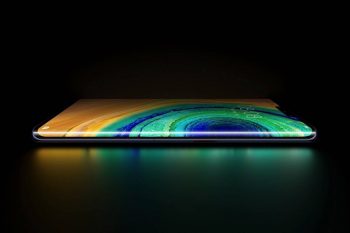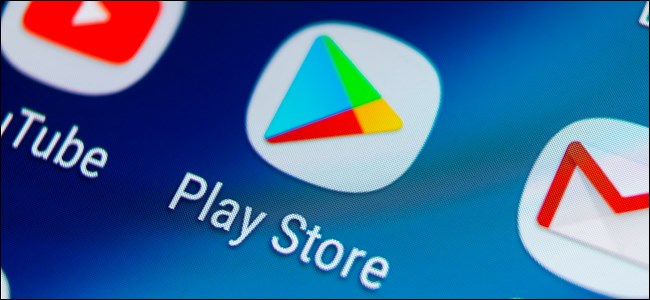
How to install the Google Play Store on the Huawei Mate 30 Pro
Following the launch of the Huawei P30 series, the handsets that were launched after did not come with Google Play Services installed. This is due to an ongoing trade war between the US and China where Huawei has since been placed on the US Entity List, preventing it from doing business with the likes of US companies like Google.
While the Huawei Mate 30 Pro’s hardware is not in doubt, we’re sure that many users will miss the apps and services that Google offers, and while alternative apps are available, it is admittedly not quite the same.
Thankfully, there are ways to fix that problem and if you have about an hour or so and don’t mind sitting down and following a long set of instructions, then this is how you can get Google Play Services back on the Huawei Mate 30 Pro.
How to get the Google Play Store on the Huawei Mate 30 Pro

Before proceeding with the instructions below, you’ll want to make sure that your phone is connected to a charger. This is because we don’t want the phone to run out of battery mid-way through which could cause some complications.
Also, you’ll want to make sure that your phone is backed up and all your important files are stored elsewhere in the event that something goes wrong and you might need to factory reset it. Proceed with caution and be sure to read all the instructions carefully! There will also be a tutorial video at the end if you prefer to see the steps visually.
- Download the LZPlay.rar file here
- Get a USB drive and extract the files to the drive’s root folder, and connect the drive to your phone
- Launch the Huawei App Gallery and search for an app called “Backup” and tap Update
- Launch the Backup app and select External Storage
- Select USB Storage and tap on the file titled “7 March, 2020”
- Make sure “Apps and data” are selected and tap on Restore
- Enter the password shown in the prompt
- Wait for the restore to complete then tap on Done and go back to the home screen where you will notice a new app with a blue/purple “G” icon and Chinese text
- Launch the app and then tap on Activate and then Allow
- Clear your phone’s memory and launch the “G” app again
- Tap on the blue button at the bottom of the app and go back to the home screen
- Open the Files app, tap on Categories, and select your USB drive
- Go to the Google Installation folder
- Install the first SIX apps by tapping them one by one
- Once the apps are installed, go to your phone’s Settings > Users & accounts > Add account > Google > Tap on OK and select Existing
- Sign in with your Google account
- Once you’ve signed in, tap Next
- At this point if you have more than one Google account, you’ll need to add them now because you won’t be able to do it again later on
- Clear your phone’s memory
- Open the Files app, select your USB drive and go to the Google Installation folder
- Install the seventh app which will be Google Services
- After a moment or two, you will notice a bunch of error messages appearing in your phone’s notification tray. This is normal and if you find it too annoying, you can temporarily mute your phone’s sounds or notifications
- You will also notice that the Google Play Store will be updating, so wait for that to complete
- Once updated, launch the Google Play Store and search and download an app called Device ID by VTechSevi (it’s a purple icon with the Android logo in it)
- Launch the app once it’s been installed and tap Allow to grant it permission
- Clear your phone’s memory
- Go to your phone’s Settings > Apps and tap the three-dot icon to the top right corner of the screen and select “Show system processes”
- Search for Google Play Services and tap on it
- Tap on Force Stop and then Uninstall
- Clear your phone’s memory
- Go back to your phone’s File Manager, select your USB drive, and go to the Google Installation folder
- Tap on the eight app which is the GMS Core Mod 1 file and then tap Allow and wait for it to install
- Clear your phone’s memory
- Go to your phone’s Settings > Apps and tap the three-dot icon to the top right corner of the screen and select “Show system processes”
- Search for Google Services Framework and tap on it
- Tap on Storage > Clear Cache and then Clear Data
- Clear your phone’s memory
- Launch the Device ID app and you will notice that the Google Services Framework ID is gone
- Clear your phone’s memory
- Launch the Google Play Store
- You might be greeted with an error message and if you don’t see it, close the app and relaunch it. Keep repeating this process until you see an error message with a “Retry” button
- Once you are greeted with the error message, tap Retry to try and generate a Google Services Framework ID
- Keep switching back and forth between the Google Play Store and Device ID and keep tapping on “Retry” until the Google Services Framework ID reappears in the Device ID app. Alternatively, you can also try restarting your phone to see if it works, if not just keep repeating the method we just mentioned
- You will know if the Google Services Framework ID has been successfully regenerated once the Google Play Store loads and you can see apps available for download. You can double-check this by launching the Device ID app to see if the ID has reappeared
- You will also notice that the error messages have stopped. If you are still getting the error messages, then go back to Step 36 and clear cache and data and hitting the “Retry” button in the Google Play Store until it works
- Go to your phone’s Settings > Apps and tap the three-dot icon to the top right corner of the screen and select “Show system processes”
- Search for “Google Play Services” and tap on Force Stop and then Uninstall
- Go back to your phone’s File Manager, select your USB drive, and go to the Google Installation folder
- Install the ninth app called “GMS Core Mod 2”
- Once installed, restart your phone and you should be pretty much good to go
Conclusion
We can’t promise that you won’t run into any issues further down the road. Google did previously warn users against sideloading its apps, so there is a chance that in the future, this might no longer work or you could encounter errors later on, but for now it seems that it does and if you do miss Google’s services and its apps, then this guide should do the trick.
You might also want to check out our guide on some alternative app stores in case this seems like a bit too much work for you, or if you’re wary about downloading the necessary files.
Source: GaTal Gadged Digital
Source 2: Imran
Source 3: XDA Developers
Install the Play Store on other Huawei phones
- How to install the Google Play Store on the Huawei P40 Pro
- How to install Google Play Store on the Honor 9X Pro
- How to install the Google Play Store on Huawei & Honor phones with new one-click installer
- 5 Google Play Store alternatives for Huawei smartphone owners
